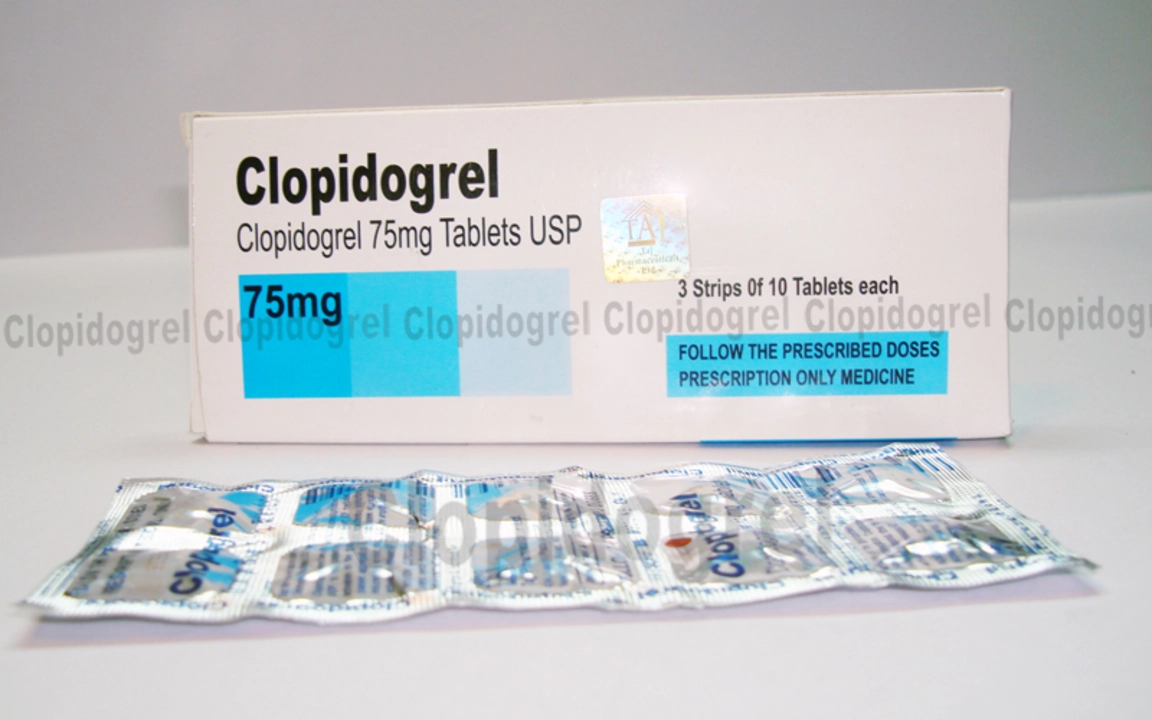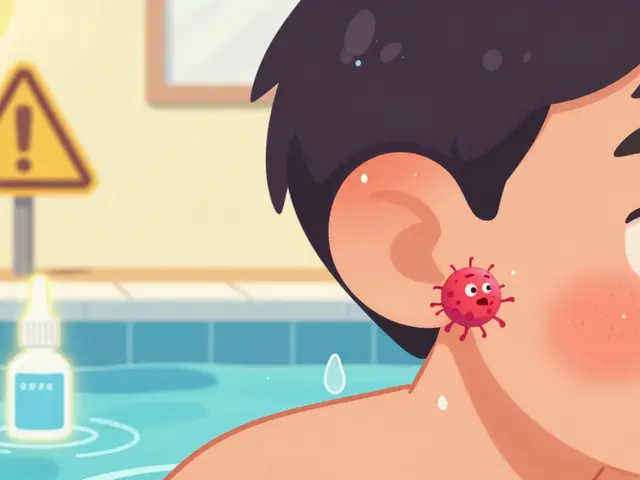 30
Apr,2023
30
Apr,2023
Understanding Clopidogrel for Children
Clopidogrel, also known as Plavix, is an antiplatelet medication often prescribed for adults to prevent heart attacks and strokes. However, there are instances when this medication may be necessary for children. In this article, we will explore the safety, dosage, and considerations for using clopidogrel in children, addressing any concerns you may have as a parent or caregiver.
How Clopidogrel Works in the Body
Clopidogrel is a medication that helps prevent blood clots from forming. Blood clots can obstruct blood vessels and lead to serious complications, such as heart attacks and strokes. Clopidogrel works by inhibiting the clumping of platelets, which are small blood cells responsible for clotting. By preventing platelet aggregation, clopidogrel helps maintain healthy blood flow throughout the body.
When Clopidogrel is Prescribed for Children
While clopidogrel is primarily prescribed for adults, there are certain situations where it may be necessary for children. For example, children who have undergone heart surgery, such as the placement of a stent or a heart valve, may be prescribed clopidogrel to prevent blood clots and reduce the risk of complications. Additionally, children with certain blood clotting disorders or a history of stroke may also benefit from clopidogrel therapy. It's essential to consult with a pediatrician or specialist to determine if clopidogrel is appropriate for your child.
Safety of Clopidogrel in Children
The safety of clopidogrel in children has been studied in clinical trials and real-world settings. Overall, clopidogrel has been shown to be safe for use in children when prescribed by a healthcare provider. However, as with any medication, there are potential side effects and risks associated with clopidogrel use in children. Some of the most common side effects include bleeding and bruising more easily, which can be concerning for parents. It's crucial to discuss any concerns you may have with your child's healthcare provider and to monitor your child closely for any signs of side effects.
Dosage Guidelines for Children
The dosage of clopidogrel for children will vary depending on factors such as the child's age, weight, and specific medical condition. In general, the dosage for children is lower than that for adults. A pediatrician or specialist will determine the appropriate dosage for your child and provide guidance on how to administer the medication. It's important to follow these instructions carefully and to never change your child's dosage without first consulting their healthcare provider.
Additional Considerations for Clopidogrel Use in Children
There are several additional considerations to keep in mind when your child is prescribed clopidogrel:
Drug Interactions
Some medications can interact with clopidogrel and increase the risk of side effects or reduce its effectiveness. Be sure to inform your child's healthcare provider of all medications your child is currently taking, including over-the-counter medications, vitamins, and herbal supplements.
Monitoring and Follow-Up
Regular monitoring and follow-up appointments are essential when your child is taking clopidogrel. These check-ups will help ensure that the medication is working as intended and allow for any necessary adjustments to your child's treatment plan. It's also important to report any new symptoms or side effects your child may be experiencing to their healthcare provider.
Encouraging Adherence
It's essential to encourage your child to take their medication as prescribed. Skipping doses or stopping the medication without consulting their healthcare provider can increase the risk of blood clots and other complications. Help your child understand the importance of their medication and establish a consistent routine for taking it.
In conclusion, while clopidogrel is primarily prescribed for adults, there are cases where it may be necessary for children. It has been shown to be safe when used under the guidance of a healthcare provider, but it's crucial to closely monitor your child for any side effects and follow the prescribed dosage guidelines. As with any medication, communication with your child's healthcare provider is key to ensuring the best possible outcome.






Wow, diving into the world of pediatric antiplatelet therapy feels like opening a portal to the very essence of life‑and‑blood! 🌟 Let's remember that every dosage decision is a tiny step on the grand philosophical journey of protecting our little heroes. 💖✨ The balance between safety and efficacy is a dance, and we, as caregivers, are the choreographers of destiny! 🙏🙌
Oh, absolutely, because every child just *loves* the idea of being on a blood‑thinner regimen-nothing says "fun weekend" like a daily dose of clopidogrel! Let's be precise: the article glosses over the nuances, and that's where the real conversation should begin.
While the presentation appears comprehensive, it inadequately addresses the statistical significance of adverse events in the pediatric cohort. The omission of confidence intervals and propensity‑score matching raises concerns about the robustness of the conclusions. Accordingly, the purported safety profile may be overstated.
Hey there! If you're navigating clopidogrel for your child, remember that consistency is key-set a routine, maybe tie the dose to brushing teeth. Keep a simple log: date, time, any bruises or nosebleeds. And always keep the pediatric cardiology team in the loop; they can adjust the dose based on growth and labs. Small steps make a big difference!
From an ethical standpoint, imposing lifelong medication on a minor without exhaustive evidence borders on imprudence. The medical community must uphold the principle of ‘do no harm’ and ensure that any intervention is justified by rigorous data, not merely by extrapolation from adult studies.
One must consider that the pharmaceutical industry has vested interests in expanding indications for profit. The data presented often omits long‑term surveillance, which could conceal hidden risks that only emerge years later. Stay vigilant.
It is, of course, entirely unsurprising that the narrative aligns so neatly with corporate objectives; the language is deliberately sanitized, evading any mention of the systemic implications of mass‑prescribing antiplatelet agents to a vulnerable demographic. One could argue that the omission of a thorough cost‑benefit analysis reveals an underlying agenda-perhaps an unconscious bias toward pharmaceutical endorsement-yet the veneer of objectivity remains meticulously maintained, granting the piece an air of scholarly legitimacy while subtly guiding the reader toward acceptance without critical inquiry.
Ah, the beautiful tapestry of global medicine! While clopidogrel originates from Western research, its application in diverse cultures requires sensitivity to local customs-like fasting periods or herbal supplement use. Remember, a sarcastic smile can mask a serious conversation: make sure your child's diet and traditional remedies don't interfere with platelet inhibition. And yes, always celebrate the small victories-like a bruise‑free sprint to the playground.
Cool.
Yo! Listen up-clopihdrogel is n0t a toyt i guess but if you mess up the doses u can get crazy bleedings, and that s reaaally dangerous!! Make sure to double check w/ doc and dont just trust the internet lol.
Okay, let’s unpack this thoughtful and heartfelt piece on clopidogrel for children. First, the historical context: antiplatelet therapy began as a daring experiment in the 1970s, paving the way for modern cardiology. Today, we stand on the shoulders of those early pioneers, yet we must ask whether we have truly mastered the art of dosing in the smallest of patients. The article rightly emphasizes the importance of individualized dosing based on weight and age; I cannot stress enough how pivotal that is. In practice, I have seen weight‑based calculations prevent both under‑ and over‑anticoagulation, which can be life‑saving. Moreover, the safety profile highlighted-bleeding risk-requires constant vigilance. Parents should be equipped with a clear action plan: recognize signs of abnormal bruising, gums bleeding, or prolonged nosebleeds. Regular follow‑up labs, especially platelet function tests, can catch subtle changes before a catastrophic event occurs. On the flip side, the piece could have delved deeper into drug‑drug interactions, such as proton‑pump inhibitors, which blunt clopidogrel's effect. We must also consider genetic polymorphisms in CYP2C19, which affect metabolism; a simple genetic test could tailor therapy more precisely. From an ethical lens, informed consent must encompass these nuances, ensuring families are not overwhelmed but truly educated. Lastly, the psychosocial dimension: children on chronic medication might feel “different,” so incorporating counseling into the care plan is essential. In sum, while the article provides a solid foundation, the journey toward optimal pediatric antiplatelet therapy is ongoing, demanding interdisciplinary collaboration, rigorous monitoring, and compassionate communication.
The pharmacokinetic parameters presented suffer from a lack of granularity; without stratified subgroup analysis, the extrapolation to neonates remains speculative. Furthermore, the terminology employed-a mélange of colloquialisms and clinical jargon-obfuscates rather than clarifies. Such editorial choices betray an agenda to dilute accountability.
Clearly, the article fails to recognize the nuanced interplay between platelet turnover rates in pediatrics versus adults. One must consider that the standard 75 mg dosing is not a universally applicable metric; a more precise, weight‑adjusted protocol is indispensable for efficacy.
Honestly, this whole clopidogrel hype is just another push from the pharma lobby to get kids on meds they don’t need. It’s dangerous to trust these big‑drug narratives without questioning them.
While I understand the concerns, the data do suggest that with proper monitoring, clopidogrel can be a valuable tool. Just ensure the child’s diet and any supplements are reviewed to avoid interactions.
Use a pill organizer; set reminders! Consistency prevents complications.
💡 It’s amazing how a tiny tablet can make such a huge difference in protecting our little ones! Remember to celebrate each milestone-whether it’s a bruise‑free day or a successful follow‑up visit. You’re doing great! 🌈
Ever notice how every new pediatric guideline comes out right after a big pharma conference? Coincidence? I think not. Stay skeptical.
The article misses the mark on critical pharmacodynamic considerations and oversimplifies the risk-benefit analysis.